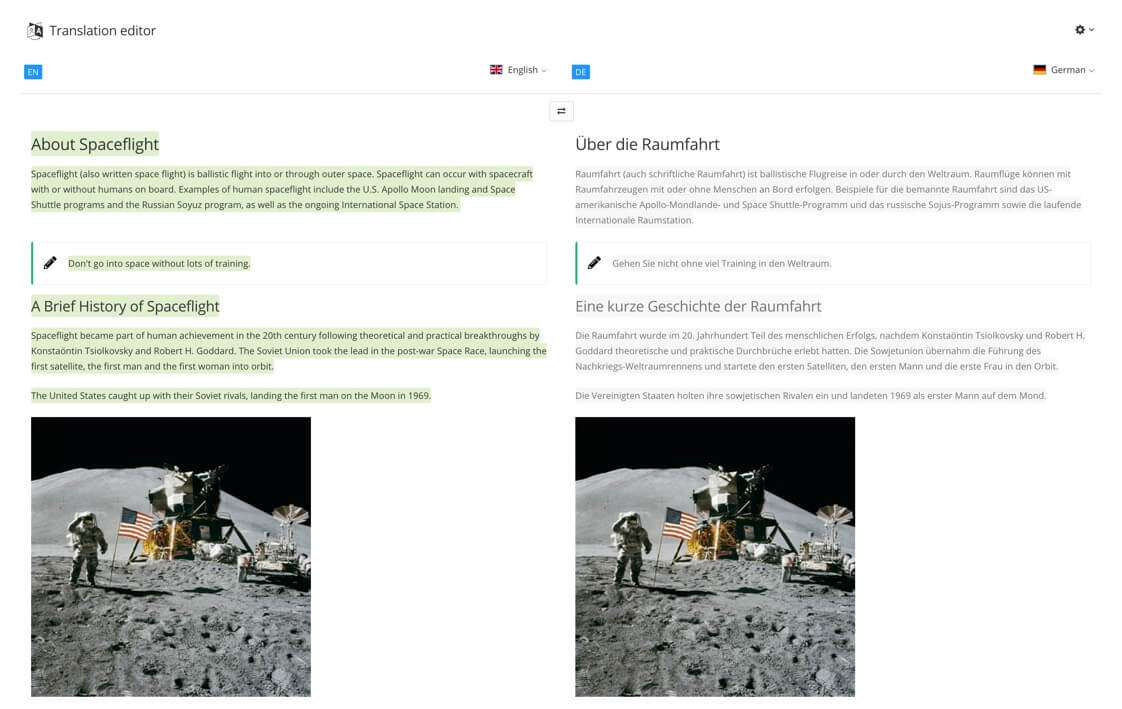Send Content to Translators
You can create translation packages to send to translation service providers. When the translation work is done, the translators return a translation package to you and you can import it into Paligo.
When your content has been reviewed and is ready to be translated, you can send it to your translators. The way to do this varies, depending on how the content is going to be translated:
Send the content to the translators.
If you are using a translation service, Export a Translation Package in Paligo and and then send it to the translation service.
If you use one of Paligo's translation integrations, such as Phrase , the translation package is sent automatically when you export it. However, you must notify the translation service that you sent the translation package. The translation software will not notify them automatically.
Note
Some translation softwares, such as Crowdin or LanguageWire, have a different type of integration. They detect when your topics change to the In Translation state and the content becomes available to translators at that point.
If translating internally, we recommend that you use Translation Assignments, as these are tracked in Paligo.
The internal translators can use Paligo's Translation View to add the translations for your content, see Working in Translation View.

The translation package that you will send to your translation service is a zip file that contains your text. It is in a format that is suitable for your translation service's software, and this is usually a standardized XML format called XLIFF.
Note
The translation package does not include images or variables. if you are using these and they need translating, send them to the translation service separately.
For more details on translating images, see Translate Images.
To learn about using translation variables and sending them to translation services, see Translate Variables. The variables need to be translatable variables, so you may need to convert your existing variables if they are of a different type.
When the translation service return the translation package, see Import a Translation Package.
Again, if you use one of Paligo's translation integrations, the content will import automatically. But you will need the translation service to notify you when they have completed a translation. There is no automatic notification.
Check and Approve the Translation
If it is incomplete, send it back to the translation service as a new package and let them know it needs more work.
Tip
For more details, see About Translating.